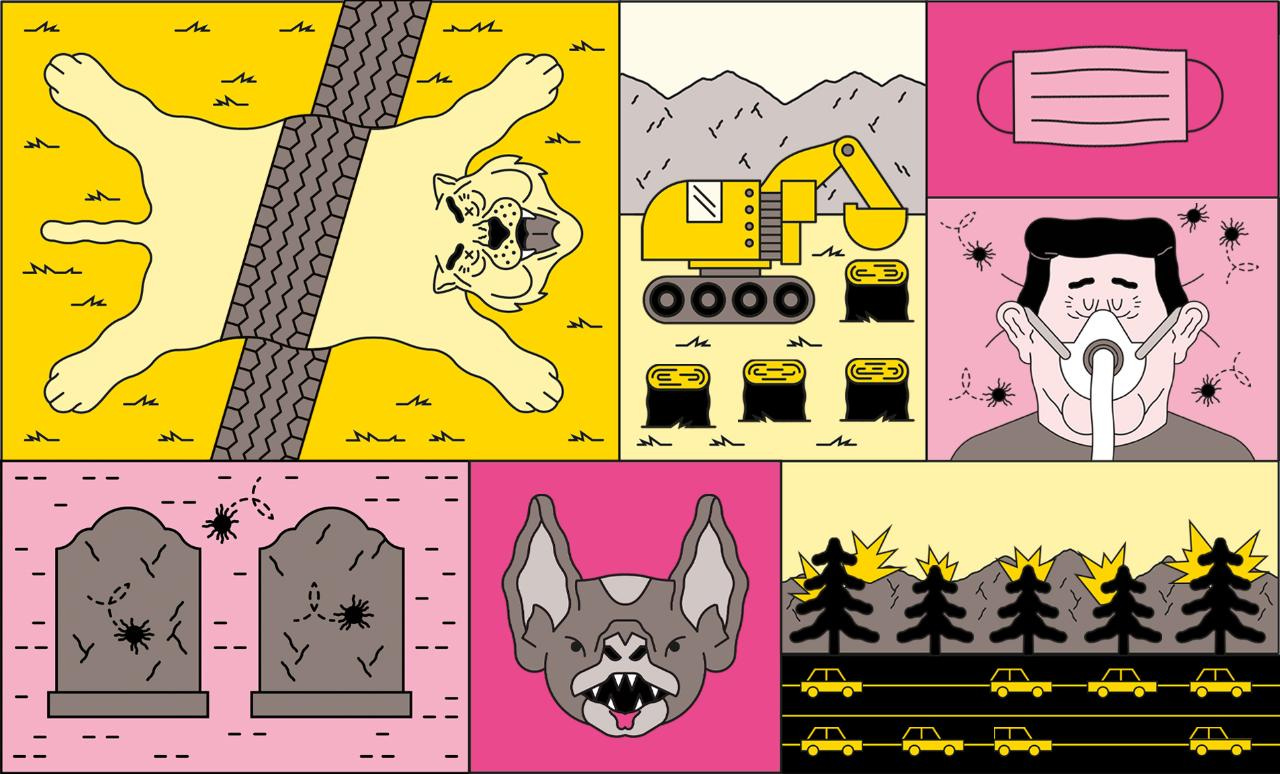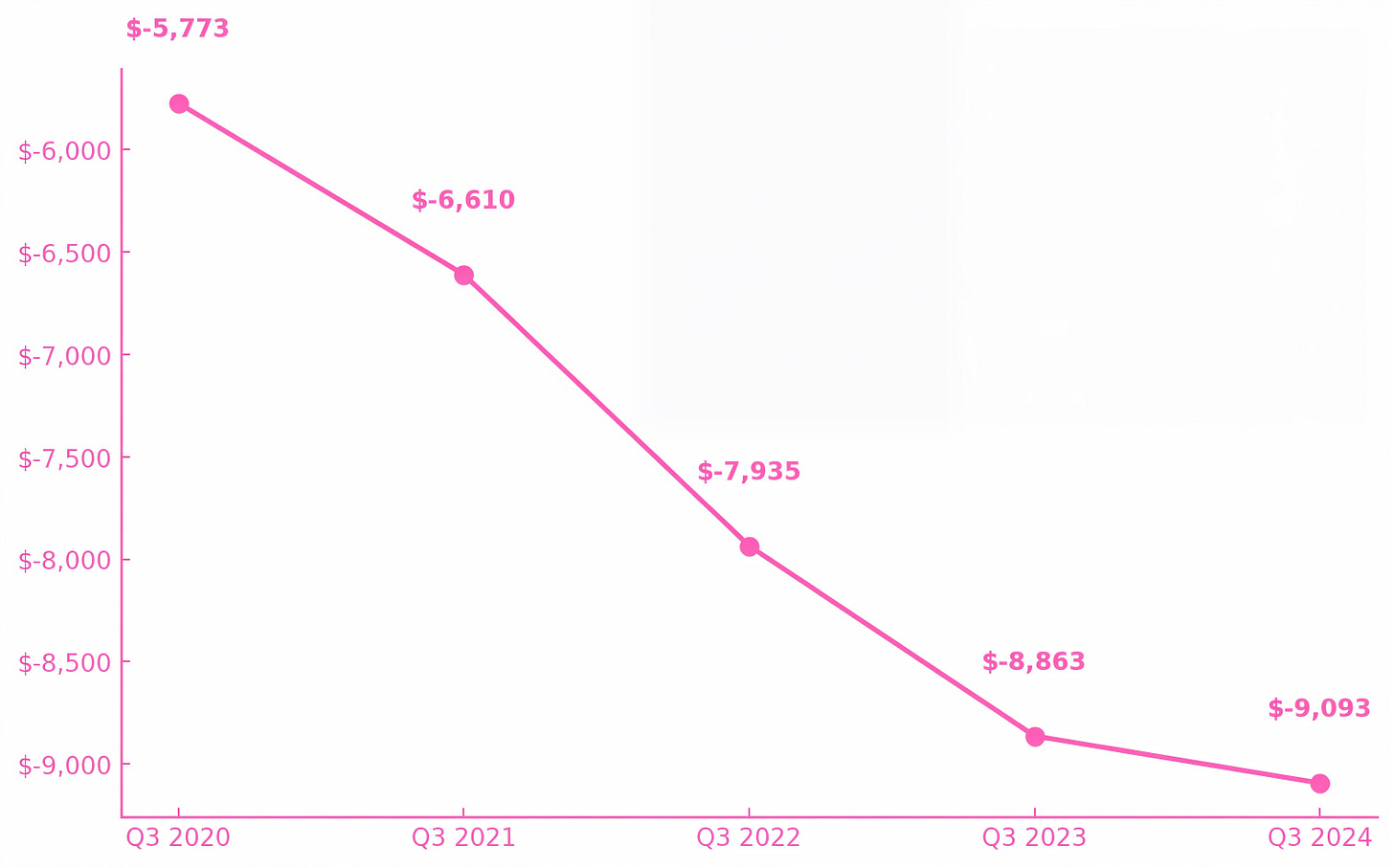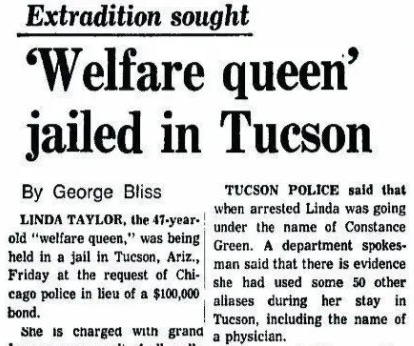This is part 1 of a three part series. The entire series is now published, along with a summary resource ^.
I recommend reading them in order, starting here, but choose your own adventure.
Orienting to the Polypermacrisis (And This Series)
I’ve mostly written about personal crisis on my substack so far but I haven’t yet started obviously connecting dots to the publication’s core theme, transformation — ‘mine, yours and ours’ as I say repeatedly from my About page to my bio and last week’s README post.
So today we’re going to do that. This one’s a pretty long story, the longest one I’ve told yet, with dots and characters connecting across nine decades and a few continents.
Like all good stories, we’ll break it up into three acts, three separate pieces published one at a time: First, today, Part One, this one, the personal, the Mine. The story of my breakdown and attempts to rebuild my life.
Then Part Two (forthcoming), the political, the part where my story becomes Yours and Ours.
Finally, in Part Three (also forthcoming), we’ll explore what this means for all of us and this very upside down fuck around time we live in I call the Now/Future, aka the transformation we’re collectively inhabiting — and what might be on the other side of it.
Said differently, I’m going to tell you why my story isn’t unique but painfully common. I want to reveal how my crisis is our crisis, a systemic crisis created by design; how a precarious reality haunts and stalks millions of paycheque-to-paycheque Canadians like a predator waiting to strike a fatal financial wounding.
I’m going to show you how personal struggle and political forces connect, how we got here, and why radical transformation is not just urgently needed, but already upon us, like it or not. Which is the bad news. The good news is that we get to decide what happens next, if only we’re aware of where we find ourselves.
Academics have invented terms like polycrisis, permacrisis, polypermacrisis, and metacrisis, to describe this period: a prolonged, extended, interconnected and seemingly unending series of destabilizing crises, both emergent from, and disruptive to, the foundational paradigms, cultural narratives, and societal structures that have held us largely together since…well, basically, the Industrial Revolution.
I prefer to call this period The Enshittocene. It’s more fun and maybe even more accurate. You’ll learn why across both Parts 1 and 2. In Part 3 we’ll talk about how we might de-shittify things.
The bridge from Part 2 to Part 3 is where we’ll discover that the crescendo of converging crises that will (hopefully) mark the end of The Enshittocene might have been necessary. I say necessary because crisis is a precondition for transformation. That’s how I know we’re in one. We’ll introduce that concept in Part 2 and unpack it in Part 3 — and look at why it’s not all bad. Cracks are where the light gets in, after all.
In short? This series is going to be some proper everything is connected to everything shit. And, in a sense, the deeper Why of what the fuck love’s got to do with it.
Without further ado.

No Job, No Income, 8 Months and Counting
One of the more consequential things I did when my mental health started to deteriorate last fall was quit my job. I had not lost touch with reality at this point, but was, in hindsight, escalating.
I was increasingly emotionally labile, shades of grandiosity were blooming, and the filter on my impulses was weakening.
Granted, to be kind to myself, I didn’t rage quit, nor was it reactive per se. I considered my choice over a few days, after counsel with two of my closest friends, including one of my best friends (and former partner) of 15 years (hi <3). He knows me better than almost anyone. He knew the job was a shaky fit from the start. We agreed it was a sound if quick decision. Importantly, I assumed sufficient resources and capacity to restart my consulting practice and expand into new offerings.
I also assumed I’d have time to do things like get private health insurance sorted out.
Wrong.
Right decision.
Catastrophically bad timing.
Quitting would be the bottom of the exponential curve in my unraveling.
This all matters because when you voluntarily quit your job in Canada, before your mental health crisis is fully apparent, you make yourself ineligible for employment insurance (EI). It was just me and my savings account (and credit cards and lines of credit). Other than EI, Welfare/Disability is the only other income support available to working age citizens in my province (BC).
Three months later, as I skip-jump-crashed the plane back onto the tarmac of my life just before New Years, I quickly realized I might not be ok-enough to work for some time.
I hoped it would be a month or two.
It’s now been five months since the episode concluded and eight since my last paycheque.
Here’s one thing I know for sure: the only thing that separates me from the growing masses on Hastings and Pandora and throughout downtowns the country wide, is the relentless, practical love of my family and friends.
Because of them I am housed, fed and have resources to recover with dignity. There will be financial fallout for me for a very, very long time — some of the most substantial help has come as patient, private loans — but I did not have to declare bankruptcy or max all my available commercial credit in the process. My gratitude is unspeakably large.
It’s Pronounced Precariat, Not Proletariat
In Canada we labour under the illusion that medical bankruptcies only happen in America, that we have a universal healthcare system and a strong social safety net. They are just that though. Illusions.
There are rips and gaps and tears in these systems large enough for entire populations to fall through.
And fall through, they do.
The visible ones are the aforementioned homeless many detest and deride, seemingly for fun, instead of understanding that, there but for the grace of God go I.
Then there is me, us, the invisible masses who you only know exist if you are one or know one. People for whom life has dealt a shitty hand, repeatedly or once or twice at the wrong time, and they are now partially or fully reliant on friends and family to prevent them from bouncing between shelters and tents and doorways. These people aren’t captured in statistics but I’d guess our numbers are shockingly and uncomfortably high.
“The difference between us,” he said, “is about six months of bad luck.”
Here’s the thing that’s more honest though: You don’t just know us, you are us, before the bad thing happens.
Our collars are blue and white, our politics are red and blue, and we live paycheque to paycheque — or maybe put a bit but not enough away — one curveball from ruin.
And I can say Us confidently because I’ve seen the data.
I want you to see it too:
A 2025 study found that 85% of Canadians agree that living paycheque to paycheque is a new normal. Over 60% cannot save after expenses, and 56% would need credit for the unexpected.
Not only can we not save for emergencies or futures, we typically have negative net savings, meaning expenses exceed income. While 60% of Canadians have negative net savings, Statistics Canada says the 20% worst off of us are short -$9,093 annually, up from -$5,773 just five years ago — as you can see in the very pretty if not shocking chart below.

Because of these conditions, median bank deposits (cash on hand) for all Canadians under 54 averages ~$12,000 with non-pension related assets valued at ~$28,000.
Could you go eight months without a paycheque or community support under these conditions?
This data says you very likely cannot.
So I will repeat: there but for the grace of god go I.
Meet The Precariat
Collectively, those of us living the above statistical reality are called The Precariat1, because our lives are just that. Precarious.
And we’ve normalized it. We’ve said that it is normal to have far more than half, nearly two thirds, of an entire country measurably teetering at the edge of collapse.
This is why Substacker and American political strategist
in his piece, The Forgotten Purpose of the Economy: A Decent Life for All, could confidently say that a Dignity Economy platform would secure political victories for the next decade.“…[we] could win every election for the next decade or more by simply repeating the purpose of the economy is give everyone willing to work hard and contribute a decent life. I would offer a Dignity Economy agenda organized around making sure it happened.”
-Frank DiStefano
He can say that because the situation in the US is just a more extreme version of ours and because he knows that when you have a majority of your citizens living in precarious conditions, you can no longer blame individuals for “poor life choices”.
These are systemic outcomes.
They are on purpose, they are predicable, and they are by design.

The Myth of Social Safety Nets & The Enforcement of Poverty
You might stop at this point and say, hold on. You said there were two income support systems in Canada. Why didn’t you go on disability? Why did you have to drain your savings, go into debt and get so much community help? You have MS and had a psychiatric emergency…surely you qualify?
My Friends.
Until you come face to face with our so-called social safety net you will not know its abject cruelty and intentional ineffectiveness.
It is shocking.
You might even look at Pandora and Hastings in a new light by the time I’m done.
I will attempt to keep this brief, but the story of me almost-applying to Disability is a long one. Not because I particularly want to expose intimate details of my life at length, or ask of your limited time and attention, but because the process is long and complex.
And that process is what I want you to know about.
Attempting to Apply to Disability
First, you basically need university-level literacy to understand the applications. They are over 20 pages of bureaucratic legalese.
For the provincial persons with disabilities program (PWD, aka, ‘Disability’), you must have both a doctor AND a second qualified professional complete the forms to attest you are in fact disabled enough to deserve support.
Their sections require significant detail so the provider must know you. This isn’t a walk-in clinic, sick note situation.
And I’m sorry, a what? A family doctor? What is that?
I am lucky enough to have a nurse practitioner and it can take 2 - 3 weeks to get an appointment for non urgent issues.
As for the second Assessor, there is a small list of qualified professionals who are allowed to fill in the forms. These are professionals like Psychiatrists, Social Workers and Registered Psychologists.
Registered Clinical Counsellors, who are most people’s therapists and well positioned to participate, are not considered qualified for this purpose.
Might I now also remind us that specialist appointments take months, even years, to get publicly, or cost many hundreds, even thousands of dollars, privately.
For a few reasons, including that I was told the public psychiatry wait time could be up to a year, and because my nurse practitioner needed a clear enough picture to safely prescribe for me, I paid for a private psychological assessment in February.
This was before I was considering applying to Disability and it cost $806.10. That number is specific because I referenced my receipts.
If I wanted that psychologist to sign my disability forms, if he was even willing, it would require another appointment (+$260) and a fee for his time to write it up (+$116.50). The total costs of that process would exceed $1000 if I wanted to go back for his attestation.
And reminder: I have no income.
About a month after I saw that fee-for-service psychologist, I finally saw a public psychiatrist (great timing, glad I spent all that money).
At this point, it was mid-March, three months after the episode ended. And it was a ‘one and done’ assessment appointment so she wouldn’t be signing any forms — or have sufficient background to do so.
It also took this long — nearly 3 months — for me to regain enough capacity to participate in my own care. I reached out to the social worker at my primary care clinic who is a qualified professional for Disability application purposes. She could not see me until April. A second social worker I contacted at the MS clinic saw me a bit faster but redirected me to community supports for the applications because their office is too busy to help.
The Gauntlet of Indignity Continues
After trying to sort out specialists, next you must give the government access to the entirety of your financials — in perpetuity.
You must be organized enough and well enough to go to your bank to get two months of statements and a declaration of your assets filled out while you suffer the indignity of Carol yelling, “I’ve got a disability applicant here, I need your help” to her coworker.
Despite being disabled, you must also prove you are sufficiently financially impoverished (at least in BC). Income Assistance (aka Welfare) and PWD are two streams of the same program.
That means they are means tested.
Means tested means proving you are poor enough.
I’m still not sure what disability and insufficient financial means have to do with each other functionally, but we’ll make that make sense in Part 2.
The form your bank fills out does not just declare your assets (you may have a maximum of $100K in all cash-convertible assets), it also gives the provincial government CRA-level access to your accounts to keep tabs on you.
If you even make it this far in the process, you are now faced with the cold hard fact that all of this labour that you probably are not well enough to do…
and might not have the cognitive resources to understand…
and might not have access to the doctors and specialists you need to participate…
after you get through alllllll of that — IF you get through all of that — you will then face the reality that your disability payment will max out at $1483.50 per month.
And it will be taxed like any other income.
I don’t need to spout cost of living numbers for you to already know this isn’t even remotely sufficient for basic survival.
When I laughed out loud to one of the social workers about this amount, she replied that the government is not paying for luxurious lifestyles.
I kept laughing.
But Wait. There’s More.
In the fine print, which the second social worker mentioned as a throwaway as if I already understood, you’ll learn that not everyone qualifies for the maximum, and it is separated into a housing allocation and a living allowance (up to $983.50). The minimum housing allocation is $75 and the maximum is $500 per month. Don’t ask me how they determine how much you get in that range, I do not know.
Also, when I say housing allocation I mean it must be explicitly spent on housing. If you cannot prove you will spend it on housing, you do not get it. In fact, if I recall correctly, it is directly dispersed to landlords.
And to get that $500 to your landlord, you must prove that you have one. In my case it would require my friends — who have generously opened their home to me and who would rather that money is in my pocket — to complete more forms. And if they complete those forms, it puts them in the position of having to claim it as income on their taxes, even if they quietly flowed it through to me.
While I pay them a small amount for utilities, it’s not $500. More penalties and disincentives, now not just for me.
This is the point in the process where I stopped.
Had I forged ahead, it would take another 3 - 4 months to get a decision on my application.
Because I have a community that’s rallied around me, I had this option. And, my recovery is tracking in the right direction, so I am optimistic I’ll get back to work sooner than later.
Given we are living a loneliness epidemic though, and given the state of community and friendship today, you can start to see why street populations are growing and survival crime is rising and both are daily in the news.
Very few people have a community like mine that can demonstrate ‘we’ve got you’ in such direct and practical ways.

The Cruelty of Routine Rejection
Even more egregious?
Both B.C.’s provincial disability program and the federal disability program routinely and as a matter of process, reject applications the first time.
The BC government does not publish statistics on their rejection rate, but advocacy groups claim the federal rejection rate for first time applications is 60%. I was explicitly counselled to expect rejection and to reapply.
And, speaking of the feds, their program — The Canada Pension Plan Disability program (CPP-D) — is even harder than PWD to access, has a longer average processing time, with an even more rigorous application. It also assumes you will never go back to work which is a very unrealistic standard for relapsing remitting conditions like MS or most mental illnesses.
I connected with a volunteer MS advocate who tried to help me with my application when I thought I might attempt it. She told me her CPP-D application took three months to complete.
And even if I had persisted on either the provincial or federal pathway, support payments only begin from the date of application, if you’re approved.
So if it took 3 months to get well enough to start the process (as it did for me), and another 1 - 3 months to chase down all of the paperwork and professionals, and another three months for your application to be reviewed, you will be looking at 9+ months from a disabling event before you are getting any financial support in your life.
And if you’re living alone nearly anywhere in BC, that support will not even pay your rent in full.
I reiterate: are you sufficiently resourced to make it 9+ months in a worst case scenario before an insufficient amount of money you traded your dignity for starts to trickle in?
While you’re pondering that question consider that we aren’t done yet.
There’s more.
“The precariat faces deepening poverty traps, as governments have moved to means-testing, conditional social assistance and workfare. If you are in the precariat and become unemployed, and manage to obtain benefits, you face a marginal tax rate of over 80% in taking the sort of low-wage job you are likely to be offered. It may be over 100%…The precariat also face precarity traps. For instance, there are often long delays between someone becoming eligible to receive benefits and starting to receive them.”
-Guy Standing, 2016
From: “Meet the Precariat, the new global class fuelling the rise of populism”
The Systemized Enforcement of Poverty
I call these systems enforced poverty specifically and on purpose. And not to be pedantic or cute or inflammatory, but to be precise and accurate.
If you were to persist and be accepted into either of these programs, the labyrinthine, punitive and very hard to understand income testing systems don’t stop after you declare your financial position and hand over access to your bank accounts. You are means tested in perpetuity and have a hard cap on additional earnings.
Disability recipients in BC are allowed additional income up to a maximum of $1350 per month. This is called an earnings exemption. While it would still leave most people at the poverty line, its a 100% improvement on the max disability amount. This also assumes you can work, and can find an employer willing to hire someone with limitations and it will almost certainly be low paying and menial.
While you are allowed to earn past the threshold, each dollar earned will reduce your benefit by a dollar. You’ll hear this in casual conversation as a dollar-for-dollar clawback. Very quickly, you are working for free, stuck on a hamster wheel of more work for less pay.
When you include taxes and other deductions, trying to supplement a luxury poverty lifestyle with enough additional income to survive, can trigger up to a 105% Marginal Effective Tax Rate (METR). A METR is the total percentage of every additional dollar earned that you lose to deductions like taxes, CPP, EI and clawbacks.
That means it’s not just that you work more for less, in many scenarios you will actually pay 5% of what you earn for the privilege of working while unwell.
Luxurious indeed.
Don’t believe me? Take the word of the five public policy academics who demonstrated this in their ~30 page 2020 paper, Less Income for More Work: Barriers to Work for Income Assistance Recipients in BC.
When is the last time you paid 105% taxes on your labour, income or investments?
I’m not religious but I’ll keep saying it: There but for the grace of god.
The Gauntlet of Indignity Explained: Prelude to Part 2
Part of why I feel compelled to tell you these stories and risk revealing so much about my circumstances — a revealing that leaves me open to a fuck tonne of judgement, stigma and potential lost opportunities, I’ll point out — is because I *can* tell these stories.
By luck and misfortune, I have exactly the right combination and confluence of experiences and abilities to make what is often invisible, visible.
And so I am. Gifts, power, responsibilities and all that.
I walked you through my attempt—and ultimate abandonment—to seek disability support in Canada to set us up to ask, But why is it this way?
This is what we’ll answer in Part 2 (forthcoming).
Because the indignities I described are not accidental. They’re rooted in deliberate, decades-old policy decisions shaped by ideologies that frame poverty and misfortune as personal faults and failings.
Except as I’ve pointed out, when you’ve got a two-thirds majority of your population one misfortune away from street life, you don’t have a problem, you have a purposeful set of design choices producing reliable, standardized outcomes.
Through this lens, “bad choices” aren’t personal moral failings, they are probably the best case option among worst case scenarios, made by a traumatized brain scrambling through scarcity.
And to truly understand that, to understand the ‘Mine, Yours and Ours’ nature of this issue, we’ve got to rewind into recent history.
Recent history, specifically about 1930 through the early 2000s. It is where we’ll find the architects the Enshittocene2, the meta-perma-poly-crisis live streaming into our eyeballs 24/7/365.

We’re all living through the enshittocene, a great enshittening, in which the services that matter to us, that we rely on, are turning into giant piles of shit.
-
And when we’re done breaking all that down in Part 2, if I’m successful, we should have a pretty cohesive picture of how and why our social systems are so thoroughly enshittified. We’ll know why our governments act like adversarial insurance companies, delaying, denying and defending themselves against their impoverished citizens, abdicating their purpose as maximizers of collective wellbeing in favour of maximizing private wealth.
And, critically, how we gave — and continue to give — them the license to do it.
Oh and we’ll meet The Welfare Queen, too. I’ve got all the tea on her and I can’t wait to spill it, including her supposed $1M defrauding of the American public.
“We live in capitalism. Its power seems inescapable. So did the divine right of kings. Any human power can be resisted and changed by human beings. Resistance and change often begin in art, and very often in our art, the art of words.”
-Ursula Le Guin



Academics adhere to a definition of the Precariat as solely those who are in nonstandard labour arrangements like gig work and self employment of all variants. Here I am using it conceptually, to refer both to those in nonstandard employment and those whose livelihoods are precarious, regardless of employment status.
Cory coined enshittification to refer to “the gradual deterioration of a service or product brought about by a reduction in the quality of service provided, especially of an online platform, and as a consequence of profit-seeking.” While he meant it in the context of the internet, I’d argue that the logic that fuels erosion of quality of services is a fundamental paradigmatic one. And that paradigm is called Neoliberalism, and it’s what Part 2 is all about.
***
If this piece lit up your brain and heart at the same time, sharing, liking, commenting or subscribing is Creator Speak for “fuck i love you, too”.
And let’s be honest this is still capitalism and this economy is shit (again) so I don’t use paywalls. If you’re in a good position and excited to make a one-time or monthly contribution, I’d be super grateful.
I’ll still fucking love you either way.
***









I just want to f'kn weep... if anything is insane it's those systems.